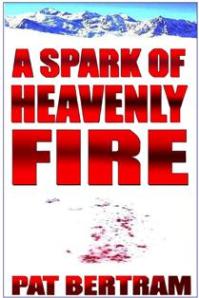Hugh Howey has produced another insightful AuthorEarning’s report, this time focusing on the impact of Kindle Unlimited (KU),
which is Amazon’s ebook service launched this summer. According to Howey, and
based on what I’ve read elsewhere, it’s possible that KU might be hurting sales
for self-publishers. According to Howey, the reason is that ebooks downloaded
from KU earn the same amount as a sale for traditional publishers but for
self-publishers payment depends on how much money is in the shared pool of
funds.
For the October report, Howey’s team pulled
data from 120,000 ebooks off of Amazon’s data product pages, which is his
largest snapshot of the industry to date. The first five charts in Howey’s
report focus on five different assumptions about the KU borrow rate, and what
it could mean to an author’s income. He then goes on to assess daily sales
rates and other data. As Howey notes, these snapshots started only nine months
ago and might not reflect true and consistent trends in ebook sales. It will be
interesting to see if next year’s reports differ significantly from what he
found this year.
Howey’s findings show that KU does seem to
have an impact on ebook rankings, visibility, and therefore potential income
for self-published authors. I know that indie authors have been complaining
about it for weeks on various forums, so he could be right, but I’m not sure if
the impact affects all genres or all authors.
Howey states there were 2,908,475 ebooks
sold on Amazon, and that 25.6% of them are available through the KU program at
the time he prepared this latest report. Of those 25.6% available, 20% of them
are on KU’s bestseller list and sub-lists. You can read a lot more information and
interesting stats by reading the full report.
Author Earnings reports were created to
help authors make clearer choices about how to publish and sell their books. I
think the intention was good, but after studying all the material and charts, and reading all the explanations
and interpretations of Howey’s findings
over the past nine months, I still have no idea which publishing option would
generate the best income for me. If I was to self-publish, should I go with KDP
or not? KU or not? CreateSpace or not? Of course, my royalty rate would be
higher than it is with a traditional publisher, but would I sell enough copies
to cover the cost of hiring a jacket designer and good editor? Despite the
growing number of self-publishers making a living from writing, the
overwhelming percentage of authors are not, based on stats from different
sources. While I appreciate the time and trouble Howey has taken to compile all
that data, the decision about publishing choices is more perplexing than ever.



